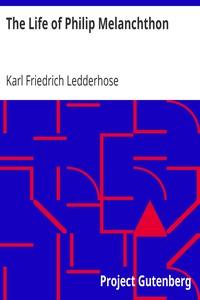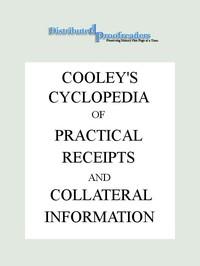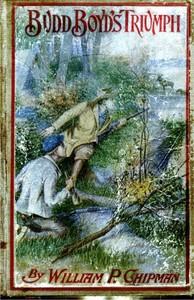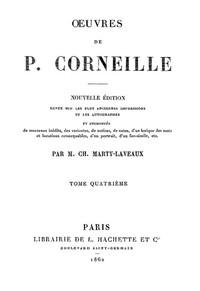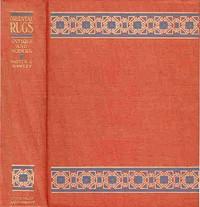|
|
Read this ebook for free! No credit card needed, absolutely nothing to pay.Words: 105779 in 11 pages
This is an ebook sharing website. You can read the uploaded ebooks for free here. No credit cards needed, nothing to pay. If you want to own a digital copy of the ebook, or want to read offline with your favorite ebook-reader, then you can choose to buy and download the ebook.

: The Life of Philip Melanchthon by Ledderhose Karl Friedrich Krotel Gottlob Frederick Translator - Melanchthon Philipp 1497-1560@FreeBooksWed 07 Jun, 2023 At that time great darkness reigned in Cologne. The Theologians, as well as the Dominican Monks of that place, had demanded that all Jewish writings should be burned. When the Emperor called upon Reuchlin for his opinion in this matter, he defended most of these writings. This enraged the people of Cologne, who were led by the baptized Jew PFEFFERKORN and the inquisitor HOCHSTRATEN. They appealed to the Pope. It gave Reuchlin much trouble, and caused much correspondence to and fro. Melanchthon also became involved in the matter, together with a large number of the most distinguished men, who entered the lists in Reuchlin's defence, and were obliged to bear the name of contempt, REUCHLINISTS. We here already meet the well-known knight, ULRICH VON HUTTEN, who wielded a sharp pen, as well as the brave and noble FRANCIS VON SICKINGEN with the knightly sword. Before this time, January 25, 1514, consequently in the 17th year of his life, Melanchthon, as the first among eleven candidates, received the degree of MASTER OF ARTS, and the privilege of delivering lectures. He lectured principally on Virgil, Terence, Cicero and Livy, and at once exhibited his great talents as a teacher. The students listened to him with pleasure, and soon many distinguished young men gathered around him. But he not only gained applause in his chair in the University; he also began to appear as an author. As early as the year 1516, ERASMUS of Rotterdam, one of the most learned men of that time, gave him the warmest eulogium in the words: "My God, what promising hopes does Philip Melanchthon give us, who, yet a youth, yes almost a boy, deserves equal esteem for his knowledge of both languages! What sagacity in argument, what purity of expression, what a rare and comprehensive knowledge, what extensive reading, what a delicacy and elegance of mind does he not display!" A man of such mind and acquirements, and who, besides all this, bore a deeper knowledge within, could no longer remain in his confined position in T?bingen. The Lord of the Church had selected a different theatre for his labors and struggles. When, by the advice of Reuchlin, he had declined a call to the bigoted University of Ingolstadt, another extensive and richly blessed field of labor was thrown open to him. The Elector FREDERICK of Saxony, who has very properly been called the WISE, in the spring of the year 1518, wrote to Reuchlin from Augsburg, where he was attending the Diet, requesting him to propose to him a teacher of the Greek, and one of the Hebrew language, for his University at WITTENBERG. Wittenberg had already acquired a great reputation, not only in Germany, but throughout Europe, on account of the mighty and bold step which an Augustinian Monk, MARTIN LUTHER, had taken about half a year before. Who has not heard of the 95 Theses, nailed by that monk on the church door at Wittenberg, on the 31st of October, 1517, against the doctrine of indulgences, and other matters connected with it, and which circulated so rapidly, that it seemed almost, in the language of a contemporary, as if the angels had served as footposts? All better disposed minds, to which class Reuchlin also belonged, joyfully welcomed the appearance of the intrepid monk of Wittenberg. When, therefore, the request of the Elector, to seek out two professors, was made to Reuchlin, he could not propose a more able and suitable man to Frederick the Wise than his own relative Melanchthon. He had received the youthful master's permission to do this. The Elector was highly pleased, especially as T?bingen had already supplied him with several able men. Testimony concerning Melanchthon, such as that given by Reuchlin, could not but produce the most favorable impression. He says: "Among the Germans I know of no one who excels him, except Erasmus of Rotterdam, and he is an Hollander." As Duke ULRICH felt the loss he was about to sustain, he endeavored to retain him. An old narrative gives us the following account: "In the meantime, Duke Ulrich, of W?rtemberg, who wished to keep Philip in his own land, sent CONRAD VON SICKINGEN, who was then his servant, to master Philip's mother, to inform her, that if her son wished to enter the priesthood, he could apply to his Grace. Then he would also provide him with a good benefice, on account of his sainted father's faithful services. However, Philip had no inclination to become a priest, but intended to comply with the invitation of the Elector of Saxony, and to serve his Grace the Elector and the University, which also eventually came to pass." Reuchlin dismissed his young friend in a parental manner with these beautiful words: "'Get thee out of thy country, and from thy kindred, and from thy father's house, unto a land that I will show thee: and I will make of thee a great nation, and I will bless thee, and make thy name great; and thou shalt be a blessing.' Gen. xii. 1, 2. This the Spirit tells me, and this hope do I entertain of thee, my Philip, my work and my comfort! Go, then, with a cheerful and happy courage!" Thus blessed and consecrated by his old friend, whom he was not to behold again in this world, he bid adieu to him and all his friends. He also paid a parting visit to the beloved ones in Bretten. His teacher, SIMLER, who was professor of the Greek language in T?bingen, remarked on the day of Melanchthon's departure: "The entire city ought to mourn the departure of this Melanchthon, and all those now residing in T?bingen have not even advanced far enough in their studies fully to appreciate how much they had lost by the removal of this great man." In August, Melanchthon is on his way. He made some valuable acquaintances. In Augsburg he was admitted to an audience with the Elector, and became acquainted with his chaplain and secretary, SPALATIN, "and they remained together until the close of the Diet." The celebrated statesman, PIRKHEIMER, in Nuremberg, a patron of Melanchthon, also received a visit from the young professor. On the 20th of August he reached Leipzig. Here the University honored him with an entertainment. He here declined a call to Ingolstadt, as well as one from Leipzig. He remained true to his promise. On the 25th of August, 1518, he arrived in his new field of labor, Wittenberg, to the joy of all, and his reception was a festive one. HIS DEBUT IN WITTENBERG, AND THE LEIPZIG DISPUTATION. Four days after his arrival, the 22 years old professor delivered the Introductory to his Lectures. The lecture-room was entirely filled. His exterior did not promise much. A small, insignificant form, with a timid gait, entered the desk, but the lofty brow, and his large blue eyes, indicated the mighty mind which tabernacled in this unseemly and frail vessel. But when he commenced his Latin address, which treated of the improvement of studies, unfolding the deepest thoughts in the most chaste language, and resting so entirely upon the word of God, all were filled with joy. Luther, who was also present, was full of enthusiasm; for he felt at once how much the University and the good cause of the Reformation had gained in the possession of a man so learned, and with so deep an insight into truth. He therefore, full of joy, wrote to his beloved friend Spalatin as early as August 31: "Philip delivered a very learned and chaste address on the fourth day after his arrival, and that too with such applause and admiration on every side, that you need not trouble yourself further in commending him to us. We must look away from his exterior appearance; we rejoice in his gifts, at the same time that we are amazed at them; and we heartily thank our gracious prince, as well as your own assistance. It is now especially important that you recommend him most earnestly to our prince. I by no means desire a different teacher of Greek, as long as he remains with us. There is but one thing I fear, namely, that his delicate constitution will not be able to endure the manner of life in this region. I also learn that he has been called with too small a salary, so that the Leipzigers already boast and hope that they shall soon be able to draw him away from us; for they already courted him before he came to us. I, and many others with me, suspect that Dr. Pfeffinger has, according to his usual custom, been endeavoring to save the Elector's purse too much in this matter. Therefore, my dear Spalatin, to speak freely, that is, with my best friend: I pray you, look to it, that you do not despise his person and age. This man is deserving of all honor; for I do not wish us and the University to do so uncourteous a thing, and give envious persons occasion to speak evil of us." Two days after this, he again commends him to Spalatin most earnestly: "I would most heartily commend to you Philip, the great Grecian, the thorough scholar, and most amiable man. His lecture-room is crowded with hearers. It is owing to him, principally, that all theologians, the first, middle, and lowest class, are studying Greek." And thus Luther also expressed himself towards other friends. But the more they learned to know each other, so much the more also did their mutual esteem and affection increase. When Melanchthon, at a certain time, wrote to his paternal friend Reuchlin, and requested Luther to add a letter also, he complied with great cheerfulness; for Reuchlin was not only one of the first champions against Papal darkness, but it was also owing to him that Melanchthon adorned Wittenberg. In his letter he called Melanchthon a wonderful man, "in whom everything is almost supernatural; and yet he is the friend and confidant of my heart." But Reuchlin could not comprehend the rapid progress of the Reformation any more than Erasmus, and latterly had become cooler towards Melanchthon, no doubt because he had taken a too zealous and active part in the work of the reformation of the church. Eck arrived in Leipzig betimes, where he was delighted at being seen and admired. On the 24th of June the Wittenbergers also arrived. Many other learned men and students were present, besides the two champions, Carlstadt and Luther. Philip Melanchthon rode at Luther's side in a carriage. A crowd of persons, abbots, counts, knights, the learned and unlearned, such as Leipzig had not seen for a long time, were gathered together. It does not belong to our purpose to describe at length the history of the discussion at Leipzig. It occupied three weeks. First of all, Eck disputed with Carlstadt about Free-will, then with Luther about the Pope's supremacy, purgatory, indulgences, penance, absolution, and satisfaction. The contest often became very hot. Even if Carlstadt did not defend his good cause with the greatest skill, Eck found his match in Luther, who placed himself in the citadel of the word of God, and went forth unconquered from the battle. However, Melanchthon did not merely sit by as an idle hearer. It is said that he now and then mingled in the contest, and supported his two friends with a few observations. Upon this, Eck addressed him in a harsh tone: "Be silent, Philip; mind your own business, and do not disturb me!" Melanchthon, who had inwardly taken a lively interest in the discussion, left Leipzig, together with his Wittenberg friends, richly blessed and strengthened for his whole life. But he was now to enter into a dispute with Eck himself. For he had written a letter to his beloved friend Oecolampadius, who regarded the bold stand of Luther and his friends with approbation, in which he related the events of the disputation, and exposed several weak points in Eck's arguments. But, although he did this, he praised Eck's "excellent natural gifts." Of course it can be easily seen where Melanchthon's heart was. He thus spoke of Luther in this letter: "I must admire the clear head, learning, and eloquence, and heartily love the sincere and truly Christian heart of Luther, whom I have known intimately for a long time." This letter was printed, and was seen by Eck, who felt himself so much aggrieved by it, that he printed a very rude reply as early as the 25th of July, in Leipzig. He treats the teacher of languages--Philippus--"who understands Greek and Latin so well," in a most contemptuous manner, as if he had assumed the right of pronouncing judgment in a matter which he did not understand, and endeavors to refute Melanchthon's letter by sixteen brief remarks. At one time he calls him "the bold little man," then again "the Wittenbergian teacher of languages, who fared like the shoemaker who wanted to know more than his last," and then again "the literalist," and "little language man." Once he addresses him in the words: "Thou dusty schoolmaster!" The whole letter is conceived in this spirit: but he was mistaken in Melanchthon. In the month of August he sent forth from "the celebrated Saxon city Wittenberg," a defence against John Eck, in which he does not use similar language. He declares in this "that he has been driven to this, more by a holy anxiety and zeal for the Holy Scriptures than by any enmity." He declares, in the most decided manner, "that it is ungodly to wrest the Scriptures according to human will and inclinations." He now refutes Eck's principal objections in the clearest manner, and advises him "to suffer the cause to strive rather than abusive language." "We owe this," he says, "to love, which, as truly as I hope to have a merciful God, I from my heart do not wish to grieve or offend." Luther was much displeased with Eck's conduct. He expresses this in a letter to Spalatin, dated August 15th: "I again come to speak of Philip, whom no Eck can bring me to hate, and whose testimony in my favour I always esteem higher than anything else. The judgment and opinion of this single man is of more value to me than that of many thousand worthless Ecks, and I would not be ashamed, although I am a Master of Arts, of Philosophy, and Theology, and am adorned almost with all the titles of Eck, to leave my own opinion, if this Grammarian could not agree with it. I have often done this, and do it still, because of the divine gift which God has deposited in this frail vessel with a bountiful blessing. Philip I do not praise, he is a creature of God, and nothing." But Eck did not consider it advisable to contend further with the champions of Wittenberg, who were also supported by other worthy men. He was silent, and as he perhaps thought that other weapons were needful in such a case, perhaps like those employed against Huss and Jerome a hundred years before, he journeyed to Rome, and sought shelter beneath the thunders of excommunication from the Papal Chair. Free books android app tbrJar TBR JAR Read Free books online gutenberg More posts by @FreeBooks
: Cooley's Cyclopædia of Practical Receipts and Collateral Information in the Arts Manufactures Professions and Trades... Sixth Edition Volume I by Cooley Arnold James Tuson Richard Vine - Formulas recipes etc.; Industrial arts Dictionaries; Technology Dict@FreeBooksWed 07 Jun, 2023

: Budd Boyd's Triumph; or The Boy-Firm of Fox Island by Chipman William P William Pendleton - Conduct of life Juvenile fiction; Fishing Juvenile fiction; Friendship Juvenile fiction; Country life Juvenile fiction; Avarice Juvenile fiction; Youth Conduct of l@FreeBooksWed 07 Jun, 2023
|
Terms of Use Stock Market News! © gutenberg.org.in2025 All Rights reserved.

